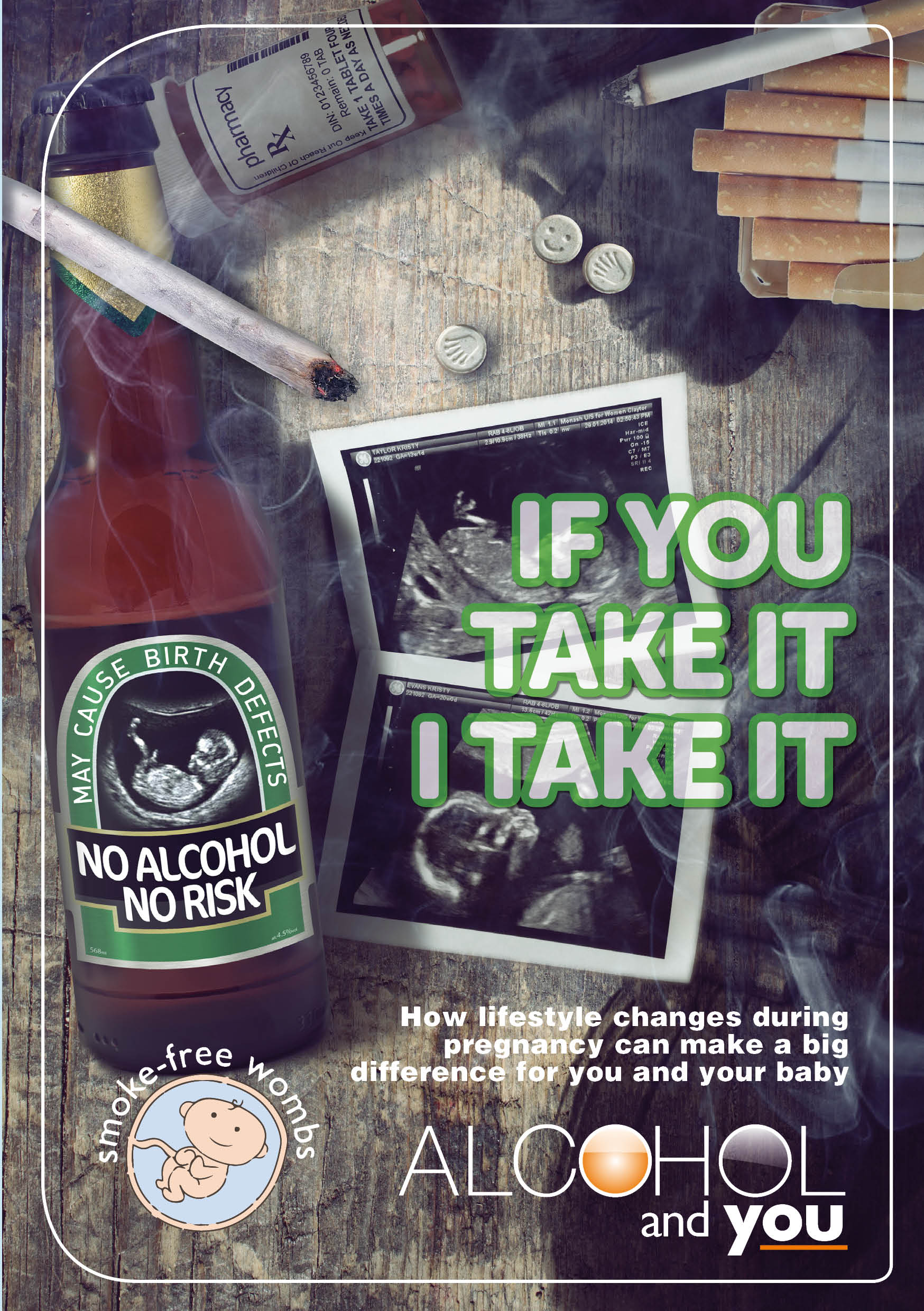RESOURCE HUB:
Alcohol & Pregnancy

Alcohol and Pregnancy
Overview
There used to be debate about whether it was safe to drink some alcohol when pregnant but Chief Medical Officer guidance now is clear that pregnant women should not drink any alcohol at all.
- If you are pregnant or planning pregnancy, the safest option is not to drink alcohol.
- This is to keep the risks to your baby to a minimum. The more you drink the greater the risk to your baby.
What if I’ve already drunk alcohol in pregnancy?
If you find out you’re pregnant after having drunk alcohol early in the pregnancy you should avoid drinking further. Official advice is that it is unlikely in most cases that the baby would be affected.
If you’re worried about how much you’ve been drinking when pregnant, talk to your doctor or midwife.
What effect does alcohol have?
When a pregnant woman drinks alcohol, the alcohol in her blood passes freely through the placenta into the developing baby’s blood. Because the baby does not have a fully-developed liver, it cannot filter out the toxins from the alcohol as an adult does. Instead, the alcohol circulates in the baby’s blood system and, in doing so, it can destroy brain cells and damage the baby’s developing nervous system at any point during the nine months of pregnancy.
If you are pregnant or planning a pregnancy, the safest approach is not to drink alcohol at all, to keep risks to your baby to a minimum. Drinking in pregnancy can lead to long-term harm to the baby, and the more you drink, the greater the risk. We also know that the damage exposure to alcohol before birth can cause to babies is irreversible.
Fetal Alcohol Spectrum Disorder (FASD) is an umbrella term for lifelong alcohol related disorders and congenital disabilities caused by alcohol exposure to the baby in the womb. The mother does not have to be drinking heavily for this to occur. Symptoms of FASD may include:
- Learning difficulties
- Problems with emotional development and behaviour
- Memory and attention disorders
- Hyperactivity
- Facial deformities
- Being small, at birth and throughout life.
The effects can be mild or severe, ranging from reduced intellectual ability and attention problems to heart problems and even death. Many children experience serious behavioural and social difficulties that last for their whole lifetime. Although alcohol can affect the development of cells, organs and systems, the brain and nervous system are particularly vulnerable.
Put simply, Fetal Alcohol Spectrum Disorders (FASD) is 100 per cent preventable – provided no alcohol is consumed during pregnancy.


Here are three ways to keep your drinking under control if you’re trying to have a baby.
Stand firm.
If you’re out with friends or colleagues, you may be under pressure to drink, especially if you haven’t announced your pregnancy yet. Tell them you’re driving, on a health kick, or simply stick to soft drinks.
Start slowly
If you are trying to conceive, try cutting down your units gradually. Start off by reducing your drinking each day, and then try having a few alcohol-free days a week.
Get support
Ask your partner to help you by cutting down their drinking as well. If you are trying to conceive this is vital, as drinking impairs sperm count and heavy drinking can cause temporary impotence.
If you need help to stop drinking, or have any concerns or questions about pregnancy and alcohol, contact your GP or midwife or visit: www.drugsandalcoholni.info for information on local services.
If I Take It You Take It
Brief Advice Toolkit
If you are thinking about having a baby or are pregnant and want to make changes around drinking, smoking or drugs you may finds this resource helpful.


